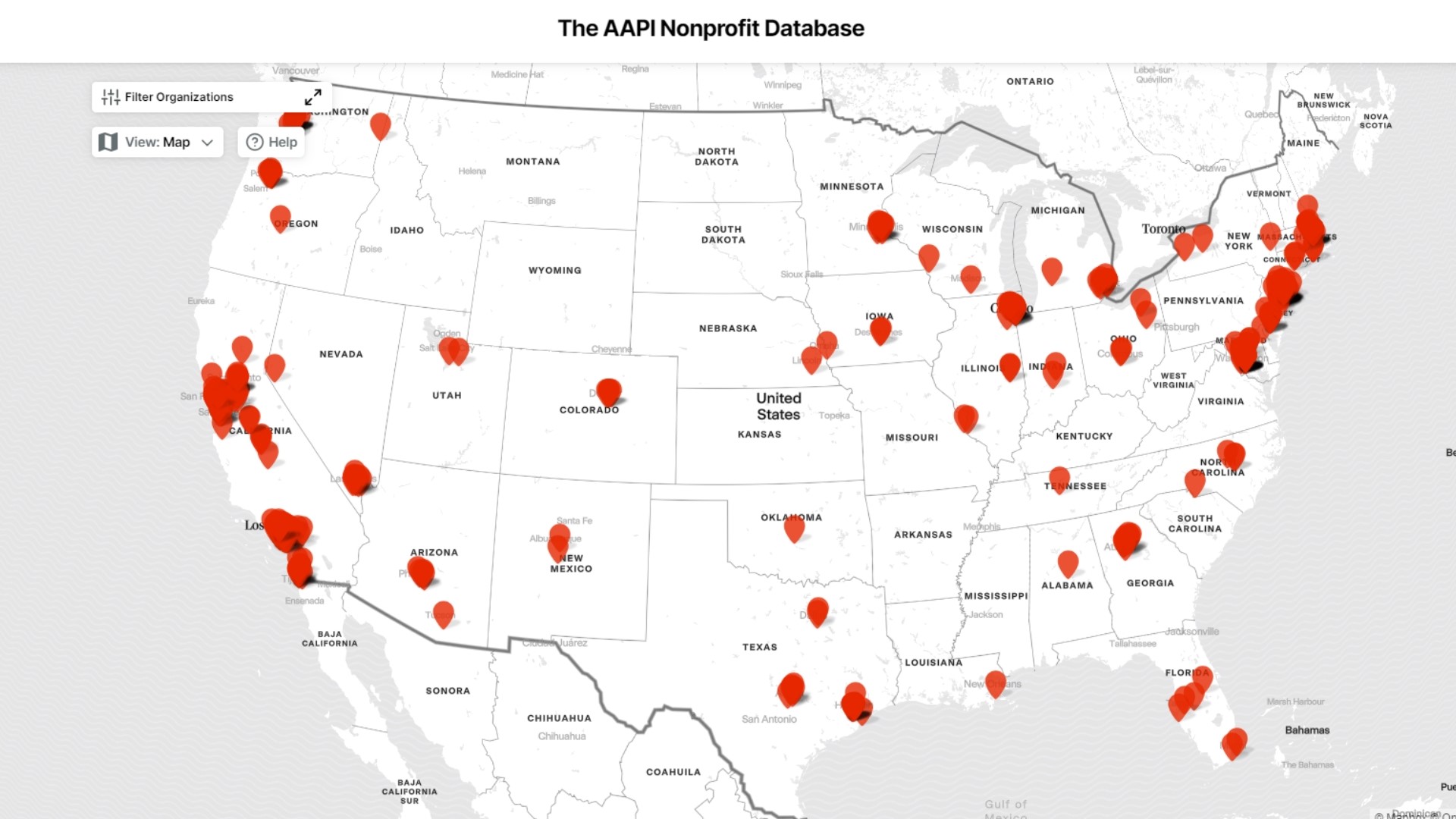SAN FRANCISCO, California — A new, interactive database is being released to help Asian American nonprofits around the country. As a whole, Asian American and Pacific Islander groups are historically underfunded and under-resourced and receive less than 0.2 percent of philanthropic giving, according to The Asian American Foundation.
“I think it traces back to just how hidden we are as a community,” said Sruthi Chandrasekaran, TAAF’s director of data and research. The Asian American community of often seen through the model minority myth.”
Chandrasekaran says the Asian American community is often seen as not needing resources, which has been used to create both a wedge between AAPIs and other communities as well as to erase the needs of communities. The Pew Research Center found income inequality in the U.S. is greatest among Asians, displacing Blacks as the most economically divided racial or ethnic group in 2018. While Asians overall rank as the highest-earning racial and ethnic group nationwide, it is not shared by all Asians. Those in the top 10 percent of the income distribution earned nearly 11 times as much as those at the bottom in 2018.
The AAPI Nonprofit Database is designed to make it easier for anyone looking to donate, volunteer, or get involved in supporting AAPI nonprofit groups across the country. A person using the database can take a short quiz to match them with a curated list of organizations, they can search for organizations listed on a map, or they can search for issues like anti-hate, health and wellbeing, or youth development.
Peter Tao, OCA-St. Louis chapter board member is a community leader and activist who grew up raising awareness about Asian American issues in the heart of America. His father, William Tao, helped start and lead one of the founding national chapters of OCA-Asian Pacific American Advocates 50 years ago. Tao says for decades, the model minority myth has made it harder for groups to serve those in need.
“The model minority has clearly presented a belief that Asian people do not have needs, do not have problems, and do not have an equal seat or historical stakeholder within our society,” says Tao.
Though a national database could make charitable giving more equitable and easier for donors, it should also be noted there is a similar effort happening in St. Louis with FOCUS STL to connect nonprofits with ethnically diverse communities that could launch by the fall.
Nonetheless, non-profits will take all the help they can get, especially those located in areas that get overlooked in Asian American spaces.
“Having a database would be extremely helpful for folks like me doing community advocacy work in the Midwest since it’s harder to make connections here compared to cities with larger AAPI populations,” said Min Liu, founder of the youth advocacy group Asian American Civics Scholars. Liu’s group has taken charge of a number of initiatives in St. Louis including cleaning and maintaining Chinese graves and hosting mental health workshops for Asian American caregivers and youth.
“Small nonprofits do not have the resources to look for funding sources, and it’d be great to have such a database ready to use,” said Liu. Liu is a professor but spends a lot of time helping high schoolers understand their heritage as well as their sense of belonging. Suicide is the leading cause of death in Asian American youth, according to the CDC. It is the only group in which suicide is the number one cause of death.
The database has more than 650 organizations listed so far but allows for nonprofits to register. As it stands now, only two nonprofits are listed in Missouri, and there are at least a dozen in the St. Louis area alone ranging from refugee and immigration services to community organizations.
At the very least, it’s a start to change historically low numbers amid high vulnerability inside Asian American communities, made more obvious during the pandemic and anti-Asian sentiment.
“In the face of continued anti-Asian hate and rhetoric, it is now more important than ever to invest in resources to support the diverse needs of AAPI communities,” said Norman Chen, CEO of TAAF in a news release.
The Asian American Foundation and the Walmart Foundation partnered to create the database.
Editor's note: 5 On Your Side's Michelle Li is a co-founder of the nonprofit The Very Asian Foundation. VAF's mission is to shine a light on Asian experiences through advocacy and celebration.

